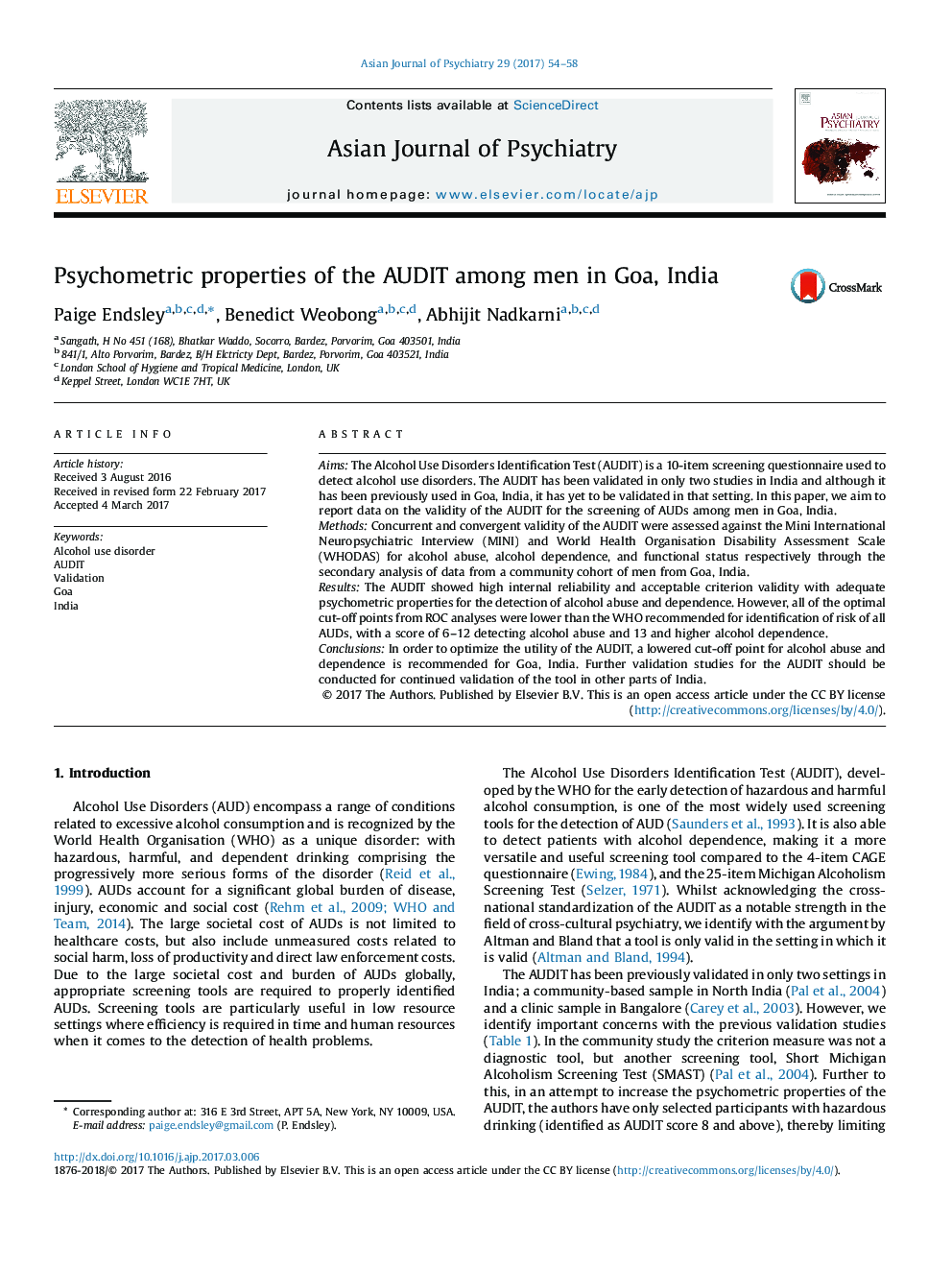| Article ID | Journal | Published Year | Pages | File Type |
|---|---|---|---|---|
| 4929854 | Asian Journal of Psychiatry | 2017 | 5 Pages |
â¢The Konkani AUDIT showed high internal reliability and acceptable criterion validity.â¢All optimal cut-off scores were found to be lower than WHO-recommended scores.â¢Lowered cut-off points for alcohol abuse/dependence are recommended in Goa, India.â¢Lowered cut-off points could have implications for treatment/seeking interventions.
AimsThe Alcohol Use Disorders Identification Test (AUDIT) is a 10-item screening questionnaire used to detect alcohol use disorders. The AUDIT has been validated in only two studies in India and although it has been previously used in Goa, India, it has yet to be validated in that setting. In this paper, we aim to report data on the validity of the AUDIT for the screening of AUDs among men in Goa, India.MethodsConcurrent and convergent validity of the AUDIT were assessed against the Mini International Neuropsychiatric Interview (MINI) and World Health Organisation Disability Assessment Scale (WHODAS) for alcohol abuse, alcohol dependence, and functional status respectively through the secondary analysis of data from a community cohort of men from Goa, India.ResultsThe AUDIT showed high internal reliability and acceptable criterion validity with adequate psychometric properties for the detection of alcohol abuse and dependence. However, all of the optimal cut-off points from ROC analyses were lower than the WHO recommended for identification of risk of all AUDs, with a score of 6-12 detecting alcohol abuse and 13 and higher alcohol dependence.ConclusionsIn order to optimize the utility of the AUDIT, a lowered cut-off point for alcohol abuse and dependence is recommended for Goa, India. Further validation studies for the AUDIT should be conducted for continued validation of the tool in other parts of India.
